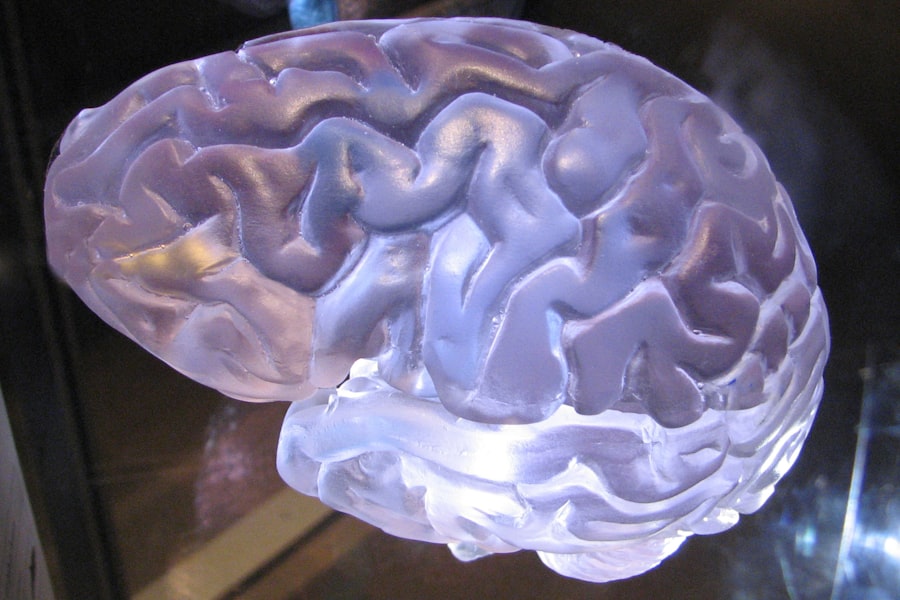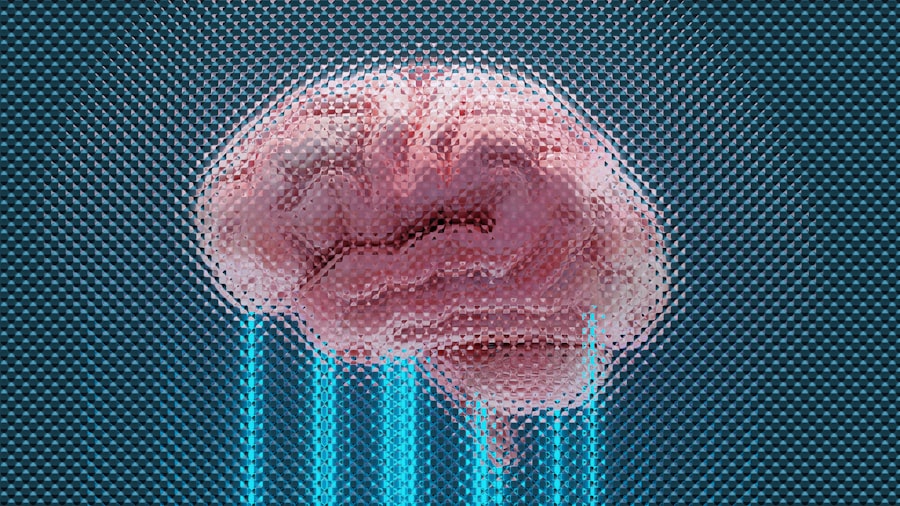Princeton University has long been a bastion of intellectual inquiry, and its exploration of consciousness is no exception. The history of consciousness research at Princeton can be traced back to the early 20th century when philosophers and psychologists began to grapple with the nature of human awareness and subjective experience. Pioneering figures such as William James, who is often regarded as the father of American psychology, laid the groundwork for understanding consciousness as a stream of thoughts and feelings.
His work emphasized the importance of introspection and the subjective nature of experience, which would later influence generations of researchers. As the decades progressed, Princeton became a hub for interdisciplinary studies that sought to unravel the complexities of consciousness. The establishment of the Princeton Neuroscience Institute in the late 20th century marked a significant turning point.
This institute brought together experts from various fields, including psychology, neuroscience, and philosophy, to collaborate on understanding the mechanisms underlying consciousness.
Key Takeaways
- Princeton has a long history of conducting research on consciousness, dating back to the 1960s.
- Quantum physics plays a significant role in understanding consciousness, as it suggests that consciousness may have a fundamental role in the universe.
- There is a strong connection between consciousness and the human brain, and understanding this relationship is a key focus of research at Princeton.
- Princeton’s research on consciousness has had a significant impact on the field of psychology, leading to new insights and approaches to studying the mind.
- Meditation and mindfulness practices are being used at Princeton to explore the mysteries of consciousness and its potential benefits for mental health and well-being.
The Role of Quantum Physics in Understanding Consciousness
The intersection of quantum physics and consciousness has sparked considerable debate and intrigue among scientists and philosophers alike. Some researchers at Princeton have posited that quantum mechanics may offer insights into the nature of consciousness that classical physics cannot provide. The idea that consciousness could be linked to quantum processes suggests that the mind may operate on a level that transcends traditional neurological explanations.
This perspective challenges the reductionist view that consciousness can be fully understood through brain activity alone. One prominent theory in this realm is the Orch-OR (Orchestrated Objective Reduction) theory proposed by physicist Roger Penrose and anesthesiologist Stuart Hameroff. This theory posits that quantum computations within neuronal microtubules could be fundamental to conscious experience.
While this hypothesis remains controversial, it has inspired a wave of research at Princeton and beyond, encouraging scientists to explore how quantum phenomena might influence cognitive processes. The implications of such research could revolutionize not only our understanding of consciousness but also our grasp of reality itself.
The Connection Between Consciousness and the Human Brain

The relationship between consciousness and the human brain has been a focal point of research at Princeton, where neuroscientists have employed advanced imaging techniques to investigate how brain activity correlates with conscious experience. Studies utilizing functional magnetic resonance imaging (fMRI) have revealed that specific brain regions are activated during various conscious states, from wakefulness to deep sleep. These findings have provided valuable insights into how different neural networks contribute to the richness of human experience.
Moreover, researchers have delved into the phenomenon of altered states of consciousness, such as those induced by meditation or psychedelic substances. By examining how these states affect brain function, scientists at Princeton have begun to unravel the neural correlates of consciousness. This research not only enhances our understanding of normal cognitive processes but also sheds light on potential therapeutic applications for mental health disorders.
The intricate dance between brain activity and conscious awareness continues to be a captivating area of study, with Princeton at the forefront.
The Impact of Princeton’s Research on the Field of Psychology
| Research Area | Impact |
|---|---|
| Cognitive Psychology | Groundbreaking studies on memory and attention |
| Social Psychology | Contributions to understanding group behavior and social influence |
| Clinical Psychology | Advancements in understanding and treating mental health disorders |
| Developmental Psychology | Key insights into child development and parenting |
Princeton’s contributions to consciousness research have had a profound impact on the field of psychology, influencing both theoretical frameworks and practical applications. The university’s emphasis on interdisciplinary collaboration has fostered an environment where psychological theories can be enriched by insights from neuroscience, philosophy, and even quantum physics. This holistic approach has led to a more nuanced understanding of human behavior and cognition.
One significant outcome of this research is the development of new therapeutic techniques aimed at enhancing mental well-being. By integrating findings from consciousness studies into psychological practice, clinicians are better equipped to address issues such as anxiety, depression, and trauma. For instance, mindfulness-based interventions, which draw on principles derived from consciousness research, have gained traction as effective tools for promoting emotional resilience.
As Princeton continues to push the boundaries of knowledge in this area, its influence on psychology will likely expand further.
Exploring the Mysteries of Consciousness Through Meditation and Mindfulness
Meditation and mindfulness practices have emerged as powerful tools for exploring the depths of consciousness, and Princeton researchers have been at the forefront of this exploration. Studies conducted at the university have demonstrated that regular meditation can lead to significant changes in brain structure and function, particularly in areas associated with attention, emotional regulation, and self-awareness. These findings suggest that meditation not only enhances well-being but also provides a unique lens through which to examine the nature of consciousness itself.
Furthermore, mindfulness practices encourage individuals to cultivate present-moment awareness, allowing them to observe their thoughts and feelings without judgment. This process can lead to profound insights into the workings of the mind and the nature of subjective experience. Researchers at Princeton have investigated how these practices can alter neural pathways and promote psychological resilience, offering valuable implications for mental health treatment.
As interest in meditation continues to grow, Princeton’s research will likely play a pivotal role in shaping our understanding of its effects on consciousness.
The Ethical Implications of Consciousness Research

As consciousness research advances, ethical considerations become increasingly important. At Princeton, scholars are actively engaging in discussions about the moral implications of their findings. One pressing issue is the potential for misuse of knowledge related to consciousness, particularly in areas such as artificial intelligence and neuroenhancement.
The ability to manipulate or enhance conscious experience raises questions about autonomy, consent, and the definition of what it means to be human. Moreover, researchers must grapple with the ethical treatment of individuals involved in studies on altered states of consciousness. Ensuring that participants are fully informed about potential risks and benefits is paramount.
By fostering a culture of responsibility, they can help ensure that advancements in consciousness research benefit society as a whole.
The Intersection of Consciousness and Artificial Intelligence
The relationship between consciousness and artificial intelligence (AI) is a rapidly evolving area of study that has garnered significant attention at Princeton. As AI technology advances, questions arise about whether machines can possess consciousness or self-awareness akin to humans. Researchers are exploring whether it is possible for AI systems to replicate aspects of conscious experience or if true consciousness is inherently tied to biological processes.
Princeton’s interdisciplinary approach allows for rich discussions on these topics, drawing from fields such as cognitive science, philosophy, and computer science. Some scholars argue that understanding human consciousness is crucial for developing ethical AI systems that align with human values. Others caution against anthropomorphizing machines, emphasizing that current AI lacks subjective experience despite its impressive capabilities.
As this dialogue continues, Princeton remains a key player in shaping our understanding of consciousness in relation to artificial intelligence.
The Practical Applications of Understanding Consciousness
Understanding consciousness has far-reaching practical applications across various domains, from mental health treatment to education and beyond. At Princeton, researchers are actively exploring how insights into consciousness can inform therapeutic practices aimed at improving mental well-being. For instance, techniques derived from mindfulness research are being integrated into clinical settings to help individuals manage stress and anxiety more effectively.
In educational contexts, an understanding of consciousness can enhance teaching methods by promoting awareness of different learning styles and cognitive processes. By recognizing how students experience and process information consciously, educators can tailor their approaches to foster deeper engagement and comprehension. As Princeton continues its exploration of consciousness, its findings will likely inform practices that enhance both individual well-being and collective learning experiences.
The Future of Consciousness Research at Princeton
The future of consciousness research at Princeton appears bright as scholars continue to push the boundaries of knowledge in this complex field. With advancements in technology enabling more sophisticated studies, researchers are poised to uncover new insights into the nature of conscious experience. Ongoing collaborations across disciplines will likely yield innovative approaches that challenge existing paradigms and expand our understanding.
Moreover, as societal interest in consciousness grows, there will be increased opportunities for public engagement and education on these topics. Princeton’s commitment to disseminating knowledge will play a crucial role in shaping public discourse around consciousness and its implications for humanity. As researchers delve deeper into this enigmatic subject, they will undoubtedly contribute to a richer understanding of what it means to be conscious.
The Collaborative Efforts of Interdisciplinary Studies in Consciousness Research
Interdisciplinary collaboration has been a hallmark of consciousness research at Princeton, fostering an environment where diverse perspectives converge to tackle complex questions. Scholars from fields such as neuroscience, psychology, philosophy, and even art come together to share insights and methodologies that enrich their understanding of consciousness. This collaborative spirit not only enhances research outcomes but also encourages innovative thinking that transcends traditional disciplinary boundaries.
For instance, joint projects may involve neuroscientists studying brain activity during meditative states while philosophers explore the implications for theories of selfhood and identity. Such collaborations allow for a more holistic approach to understanding consciousness, recognizing that it cannot be fully captured by any single discipline alone. As Princeton continues to champion interdisciplinary studies, it sets a precedent for other institutions seeking to explore the multifaceted nature of human experience.
The Influence of Princeton’s Research on Global Perspectives of Consciousness
Princeton’s research on consciousness has had a significant impact on global perspectives regarding this profound aspect of human existence. By disseminating findings through academic publications, conferences, and public lectures, researchers at Princeton have contributed to a broader dialogue about what it means to be conscious. Their work has inspired scholars worldwide to engage with questions surrounding consciousness from various cultural and philosophical viewpoints.
Moreover, as awareness grows about the importance of understanding consciousness in addressing contemporary challenges—such as mental health crises or ethical dilemmas posed by AI—Princeton’s influence will likely continue to expand. By fostering an inclusive conversation that incorporates diverse perspectives on consciousness, Princeton plays a vital role in shaping how societies understand themselves and their place within the universe. As researchers continue their quest for knowledge in this area, they will undoubtedly leave an indelible mark on global thought regarding one of humanity’s most profound mysteries: consciousness itself.
Princeton University’s research into consciousness has long been a subject of intrigue and debate, particularly through the work conducted at the Princeton Engineering Anomalies Research (PEAR) lab. This lab explored the interaction between human consciousness and physical devices, suggesting that the mind might have a measurable impact on the physical world. For those interested in delving deeper into related studies and findings, an insightful article can be found on the X File Findings website. This article provides a comprehensive overview of various consciousness research projects and their implications. You can read more about it by visiting this page.
😲 WATCH THIS! The Secret Data That Proves Our Reality Is A Shared Illusion
FAQs
What is consciousness research at Princeton?
Consciousness research at Princeton refers to the scientific study of consciousness, including its nature, mechanisms, and neural correlates, conducted at Princeton University.
What are the main areas of focus in consciousness research at Princeton?
The main areas of focus in consciousness research at Princeton include the study of perception, attention, memory, self-awareness, and the neural basis of consciousness.
What methods and techniques are used in consciousness research at Princeton?
Consciousness research at Princeton employs a variety of methods and techniques, including neuroimaging (such as fMRI and EEG), behavioral experiments, computational modeling, and philosophical analysis.
What are some notable findings or contributions from consciousness research at Princeton?
Some notable findings and contributions from consciousness research at Princeton include studies on the neural mechanisms of attention, the role of predictive processing in perception, and the relationship between consciousness and the self.
How does consciousness research at Princeton contribute to the broader scientific understanding of consciousness?
Consciousness research at Princeton contributes to the broader scientific understanding of consciousness by providing empirical evidence and theoretical insights that advance our knowledge of the nature and mechanisms of consciousness.
